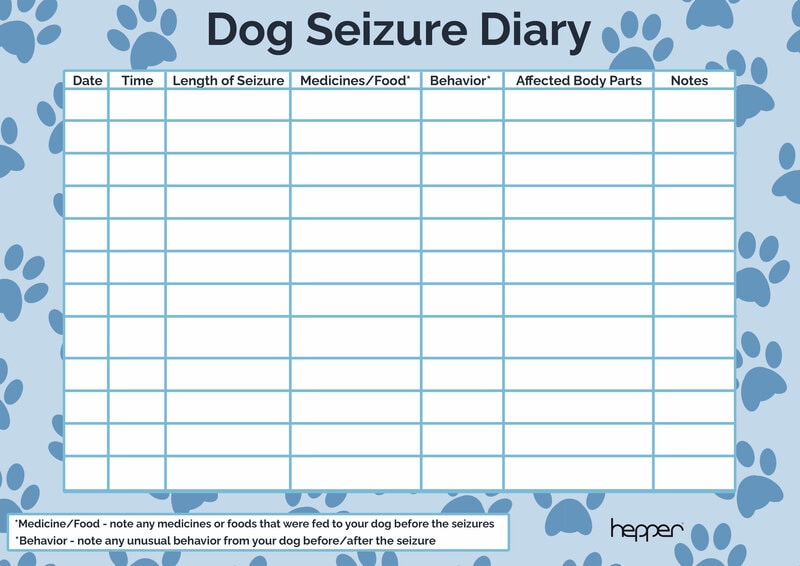Can Stress Cause Seizures in Dogs? Vet Approved Information
Updated on

Seizures can be terrifying for dog owners to witness, but they’re the most reported neurological problems. As many as one in every 20 dogs will develop seizures at some point in their lives.
Since emotional stress can be a trigger for human seizures, you might wonder if the same rings true for dogs. Though it is a less common trigger in our canine counterparts, stress certainly can play a factor in your dog’s seizure activity.
Keep reading to learn more about stress as a trigger for seizures in dogs.
Can Stress Cause Seizures in Dogs?
Stress is one of many seizure triggers for dogs. Seizures often occur during changes in brain activity, like when your dog becomes overly excited or stressed. Unfortunately, many situations can cause your dog to feel stressed, so if you believe this is one of your dog’s triggers, you’ll need to figure out what conditions are causing it to feel that way.
Situations that can cause your dog to feel stressed include:
- Changes in its environment
- Changes in its routine
- Car rides
- Thunderstorms
- Fireworks
- Visits to the vet

How Can I Know If Stress Is the Cause of My Dog’s Seizures?
One way to determine the trigger for your dog’s seizures is to keep a diary. You can make a diary by creating a table like the one we include below. The journal will help you keep track of your dog’s behavior before, during, and after its seizures so you can hopefully soon see patterns in what occurs in the time before your dog begins seizing.
Click here to download this PDF
What Other Things Can Trigger Seizures?
A trigger is a situation, inside or outside your dog’s body, that can bring on a seizure. Most dog owners report that some type of trigger causes their pup’s seizures. Aside from stressful situations, other potential seizure triggers include:
- Sleep disturbances
- Disruptions in medication
- Herbicides or insecticides
- Temperatures

What Is the Cause of Seizures?
Seizures are the result of abnormal brain activity. While certain factors can trigger your dog to experience a seizure, there are underlying causes of why your pup may begin experiencing them in the first place. Reasons can be due to genetics or as a result of structural damage to the brain.
Causes of seizures can include:
- Strokes
- Infectious diseases
- Head trauma
- Poisons
- High or low blood pressure
- Brain tumors
- Genetic disorders
- Cancer
- Organ problems
How to Reduce Stress in Dogs
So, what should you do if you’ve determined that stress is most likely the trigger behind your pup’s seizures? The goal should be to try to adjust your pup’s environment to reduce its stress as much as possible. Some techniques you can try include:
- Regular, daily exercise
- Mental stimulation
- Security blankets
- Calming background noise
- Keeping your attitude positive and calm
- Desensitization training to the stressor

 Final Thoughts
Final Thoughts
Stress can cause seizures in dogs, but it is just one of many possible triggers. To determine what is truly causing your dog’s seizures, you’ll need to start a journal to document every one of its episodes. Doing so can alert you to the triggers causing the attacks and help your vet determine the cause.
See also:
- Does Stress Give Dogs Diarrhea? 9 Stress Signs to Look Out For
- Do Dogs Stress-Eat? Learn How to Stop It!
Featured Image Credit: StockSnap, Pixabay



 Final Thoughts
Final Thoughts








